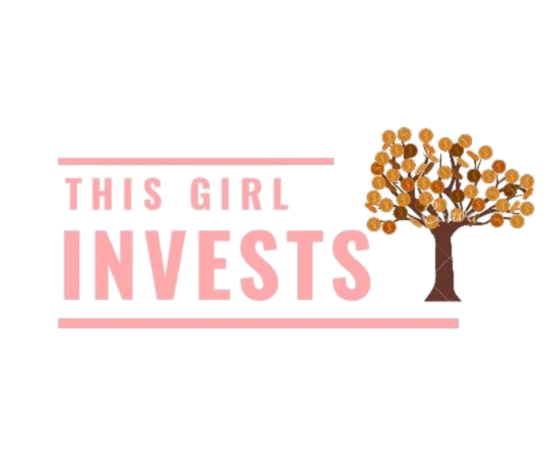Money Matters: Striking a balance
Numbers. Numbers and I have a complicated, rocky, relationship. We never seem to get along. At least, that’s what I tell myself.
Words, however, are where I feel at home. And so, it is with words that I’ll be working through my relationship with numbers today.
-
My peripatetic life has the tendency to ping-pong between extremes. I've been fortunate to explore far-flung countries and experiences - studying in Mexico one year, teaching English in China the next, and following it all up with a year working across start-ups in Malaysia. And so - naturally - my financial life, too, has been no stranger to extremes.
As a university student in the heart of central London, I had to quickly become an expert in scrimping and saving. But, what initially started as a necessity, eventually metamorphosed into a (surprisingly addictive) game. At the start of every week, I found myself in a one-player competition of sorts, pushing the limits of how much I could really save, how frugally I could really live, and, yes, the best part: how simultaneously delicious and diverse I could make my weeknight dinners with a humble budget of £3 per meal.
For all its extortionate prices, London did, in fact, offer up a fairly enticing platter of treats for cash-crunching converts like me. And so, as the years went by, I found myself increasingly falling into a (strange) love affair with the reduced-price food available at the city’s supermarkets and restaurants (Itsu’s end of day sale was a personal favourite, allowing me to justify the seemingly unjustifiable: salmon sashimi on a student budget).
When it came to the other essentials, I was a firm believer in purchasing generic, own-brand products whenever possible. And this mindset continued to deepen. I observed as my coupon-cutting hobby had, in fact, became a firmly ingrained habit - one that I tightly clung on to, even with freshers' week far behind me, even when it was no longer necessary.
And then, as with all passionate, fiery, love affairs, my tolerance for Sainsbury’s Basics table wine and discounted grocery raids began to fizzle out. A few years out of university, I finally arrived at an inflection point. I realised that life as a scrimping student - while full of spontaneity and surprises - was not an overly sustainable lifestyle to follow.
But my moment of wisdom - fleeting as they always are - abruptly ended there. Just as unwittingly as I’d become a ruthless saver, I found myself becoming a reckless spender. While I had waitressed and interned my way through my undergraduate years, the game fully changed when I received my first paycheck as a full-time employee in 2016.
Overexcited by the unprecedented spike in my bank balance, I found myself indulging in Korean skincare, endless paperbacks, and overpriced food. In a nutshell, I had suddenly shifted from own-brand to brand-new, and had a full-fledged spending crisis on my (well-moisturised) hands.
Of course, with time, this habit revealed itself to be just as unsustainable as its predecessor, and my hapless splurging reached its inevitable end - mere months after it had started. Once I came crashing back to the realm of reality, I recognised my salary for the security it provided me, and began to protect it with the respect it deserved.
-
So, what does this all mean? Which approach to personal finance do I find myself using these days? Predictably, neither.
Over the years, I’ve discovered that my financial life functions best in moderation, when organised and digested in bite-sized chunks. I’ve discovered that when my life is peppered with occasional investments in little luxuries - a fresh paperback here, a calming scented candle there - I manage to stave off any cravings for a big-bang shopping spree.
When I was denying myself these treats for long, sustained, stretches of time, I’d typically end up in a bottomless pit of budgeting fatigue. Tired of saying no, I would be more likely to embark on a dangerous I-can’t-do-this-anymore splurge at the end of every month.
Striking this balance has also been instrumental in helping me identify the items I’m willing to invest a little bit extra in (books, skincare, and travel) and those that I’d rather save on (clothes and - controversially - food). And while I no longer need to skimp on everything, I deeply appreciate the resourcefulness my university days have instilled in me.
So, here we are. While the past few years have taken me on a wild ride, from the sublime to the ridiculous (and back again), I think that I am, finally, striking a balance - a balance that works for me.
And that’s what life is about, isn’t it? Trying it all. Gently letting go of what doesn’t work. And achieving a balance between everything that remains.
Of course, when it comes to improving my financial life, I have a long way to go - no doubt. But, as of now, I feel like I’m on the right track (and thankfully, with each year, a little further away from that questionable supermarket-brand alcohol).
-
Saloni is a blogger and photographer based in Mumbai. While originally from India, she has lived in 8 countries across 4 continents, and shares her stories of personal growth, travel, and reading on her website.
Follow Saloni’s adventures on her blog, Instagram, and Twitter.
